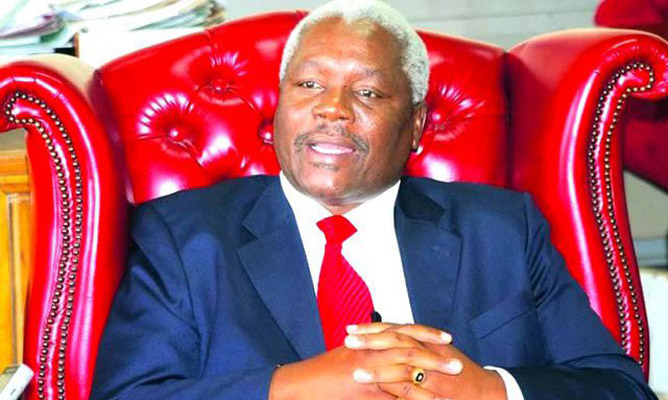
THE succession war bedevilling Zanu PF is being exacerbated by a murky ruling party constitution, a leading lawyer and researcher, Derek Matyszak, said.
BY RICHARD CHIDZA/EVERSON MUSHAVA
Matyszak told a Sapes Trust public debate in Harare on Thursday, the changes made to the Zanu PF constitution in December last year clouded the situation more than it was before the amendments.
“Section 26(2) of the Zanu PF constitution says an extraordinary congress can only be held in the event of a vacancy occurring in the office of the President requiring the party to nominate a successor, at the instance of the secretary for administration,” he said.

“The constitution does not prescribe the procedure that would then be followed suffice to say the central committee will have to be convened. And to make matters worse, (Ignatius) Chombo, the secretary for administration, can decide to convene an extraordinary congress or not. It makes everything as clear at dirty water.
“Now the same document does not say how the party president will be replaced. So the Zanu PF leadership will only change if there is a vacancy in the State Presidency.”
Matyszak said while section 35 of the ruling party’s constitution says the president of the party will be elected nationally after receiving at least two nominations from provinces, an old provision remained.
- Chamisa under fire over US$120K donation
- Mavhunga puts DeMbare into Chibuku quarterfinals
- Pension funds bet on Cabora Bassa oilfields
- Councils defy govt fire tender directive
Keep Reading
“The problem is they have section 24 that provides for the election of the president by congress,” he said.
“I am of the opinion that this was done as a fall-back position at the height of the fight with (axed Vice-President Joice) Mujuru. It was aimed at guarding against a move by the ‘Mujurites’ to move a motion for the election of the party president at congress given her power at the time. If such a scenario had arisen, Mnangagwa would have then brought section 35 into effect.” Media and democracy scholar Pedzisai Ruhanya said the military would likely be the deciding factor in the succession race adding: “I foresee a second Mgagao.
“If the infighting reaches a crescendo and there is a threat to the State, I think the military will come in as it did during the liberation struggle.”
Zanu’s then military wing, Zanla, during the bush war that brought majority rule, met and endorsed Mugabe’s leadership.
Mugabe, then secretary-general, had been fourth in the power pecking order after then president Ndabaningi Sithole, vice-president Leopold Takawira and national chairman Herbert Chitepo.
Chitepo had been killed in a bomb blast in Lusaka, Zambia, in 1975, while Takawira had died of diabetes in prison in 1970. Sithole was then the subject of the meeting after he had become unpopular with the guerillas, leaving Mugabe to ascend to the throne in 1977 in what is now known as the Mgagao Declaration.
Ruhanya said Zimbabwe was at a crossroads given Mugabe’s reluctance to anoint a leader and the failure of those around him to take up the baton.
“The old are not dying and the young cannot be born. The State’s involvement in (First Lady) Grace’s rallies will provide an indication of what Mugabe wants to happen.
“But her (Grace’s) problem is that outside her relationship with Mugabe, she is nothing. She does not have the roots that are required to sustain a power struggle,” Ruhanya said.











